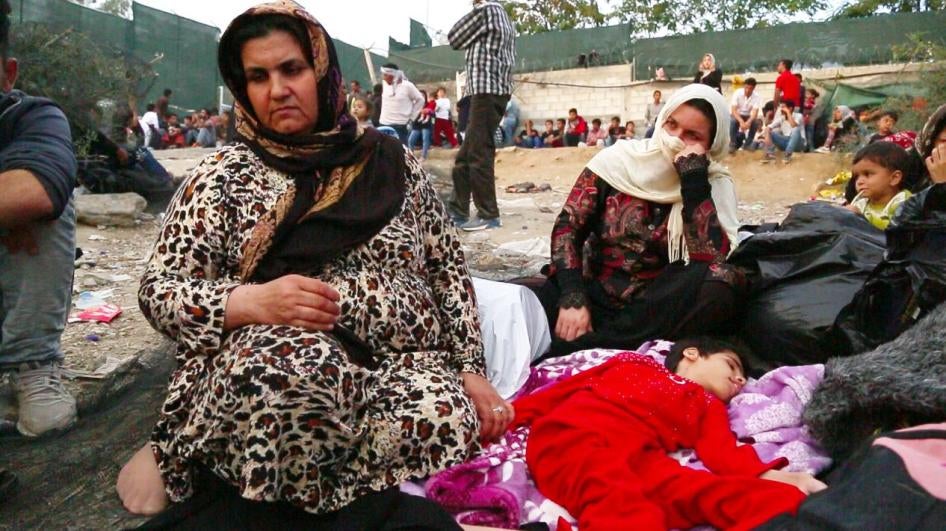Earlier this month, Zahara, a 15-year-old Afghan girl with multiple disabilities, lay on a blanket on the ground outside the Moria police registration center on the Greek island Lesbos. Zahara is blind, unable to speak, and cannot move. She, her mother, and other family members were waiting in the sprawling, informal camp surrounding the center, with no idea how or when they would go through the registration process for newly arrived asylum seekers and migrants.
Last Friday, the European Union’s Migration Commissioner Dimitris Avramopoulos inaugurated Moria as Greece’s first “hotspot.” This hotspot will operate with EU support to identify, register, and fingerprint incoming migrants. It will also help to identify people in clear need of international protection for relocation to other EU member countries where their asylum applications will be processed. Officials from Frontex, the EU’s external borders agency, and EASO, the EU’s asylum support office, will participate in the triage.
But will the appalling conditions and chaos at Moria improve? We found many people sleeping outdoors, on the dirt or on little more than a blanket on the ground at the informal camp where several thousand asylum seekers and migrants stay pending their registration. Women and children are not separated from unrelated men, raising concerns about the risk of sexual harassment and violence.
Women with young children, pregnant women, and people with disabilities or medical conditions were often not identified as persons with particular needs nor ensured that they could register with the police and get proper access to basic services, such as food and healthcare. Poor organization and lack of information create a volatile situation, and violence, such as shoving and fights in the lines to register, dissuades many from even trying to get their turn.
Now that Moria has become an EU “hotspot,” this is an opportunity to ensure the safety and rights of all asylum seekers and migrants there. The EU urgently needs to improve reception conditions, take special measures to protect women and children, and identify people at risk or who have particular needs. Registration should be done in an orderly, fair, and safe way. Hotspots are meant to better manage the influx of asylum seekers and migrants to the EU. Let’s hope that means girls like Zahara aren’t left out in the cold.










